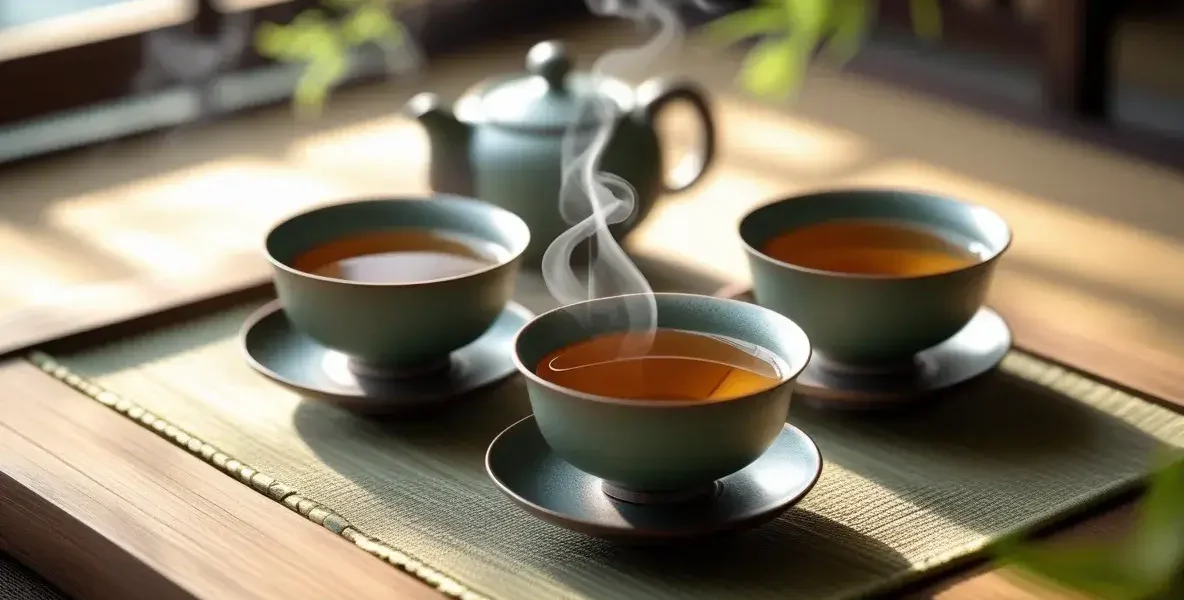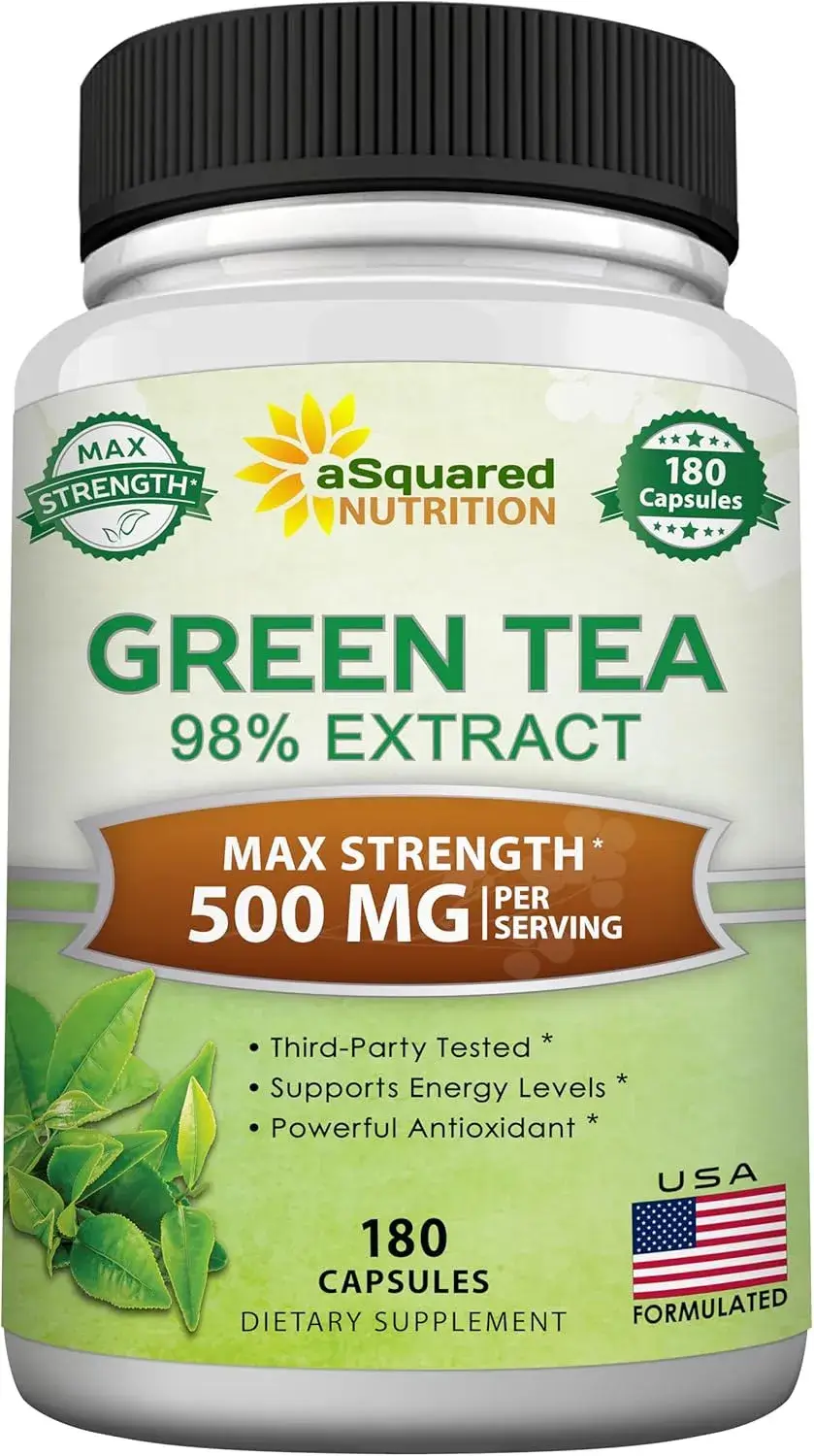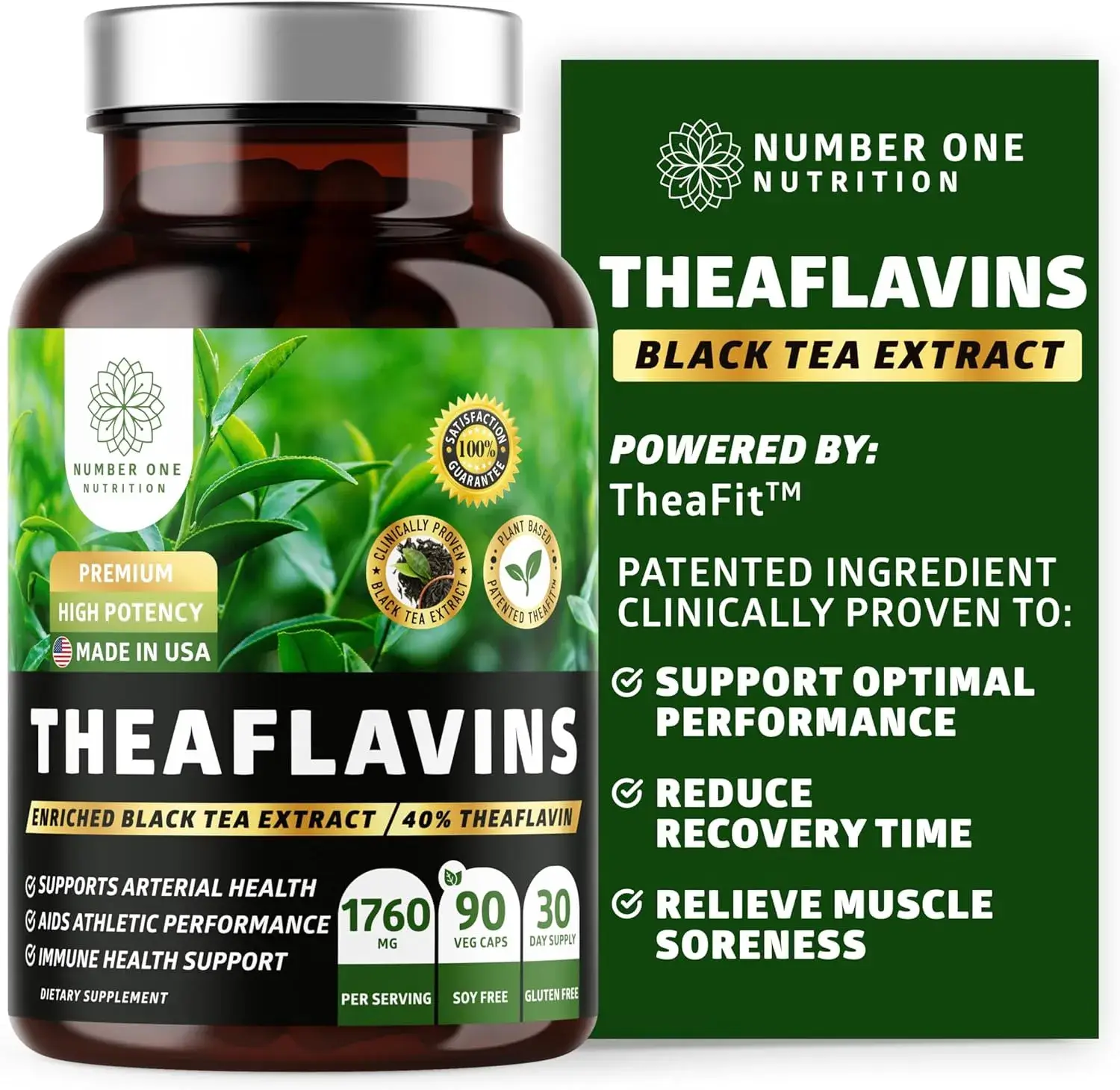Table of Contents
Did you know that sencha tea in the morning comes from a tradition that dominates the Japanese tea culture? Between 60-80% of all tea produced in Japan is sencha green tea, making it their most consumed variety for good reason.
What’s more, the health benefits of sencha green tea extend far beyond just a morning energy boost. This remarkable tea contains an impressive 150% more vitamin C than red peppers while being packed with powerful catechins like EGCG that combat oxidative stress. Additionally, sencha green tea offers a unique combination of caffeine and L-theanine that promotes calm alertness while enhancing metabolic function.
I’ve discovered that making sencha part of my daily routine has substantial science-backed advantages. Recent research shows that drinking 2-4 cups of green tea daily can lower stroke risk by up to 24%, while another ongoing Japanese study found that four or more cups daily reduces the risk of dying from Type 2 diabetes complications by approximately 40%. If you’re wondering whether to start your day with this Japanese treasure, here are five compelling reasons why you should consider sencha tea tomorrow morning.
Boosts Antioxidant Defenses
The morning cup of sencha green tea offers more than just an energy boost—it provides a powerful dose of antioxidants that can protect your body throughout the day. Unlike many other beverages, sencha tea contains a remarkable concentration of compounds that actively fight harmful free radicals and oxidative stress.
Antioxidant compounds in Sencha green tea
Sencha tea derives its antioxidant powers primarily from a group of compounds called catechins—potent polyphenols that make up 25-35% of the tea’s dry weight. Among these, epigallocatechin gallate (EGCG) stands as the most abundant and powerful, comprising up to 50% of the total flavanols in sencha. Other important catechins include:
- Epicatechin (EC)
- Epigallocatechin (EGC)
- Epicatechin gallate (ECG)
What makes these compounds so effective is their unique chemical structure. The catechins in sencha possess various hydroxyl groups in different arrangements, giving them exceptional antioxidative properties. Specifically, the three adjacent hydroxyl groups on the B-ring of EGCG and EGC are more effective at scavenging free radicals than compounds with only two adjacent OH groups.
Beyond catechins, sencha also contains vitamin C, which further enhances its antioxidant profile. In fact, one study revealed that Sencha tea extract demonstrated “very good antioxidative properties” and could potentially serve as a stabilizing agent to reduce unwanted oxidation processes.
Interestingly, research comparing different green teas found that Sencha’s antioxidant content can vary based on cultivation methods. One study discovered that Sencha cultivated under direct sunlight contained more phenolic compounds and showed higher antioxidant activity than shade-grown varieties like gyokuro or matcha. This happens because sun exposure stimulates photosynthesis, which promotes the production of secondary metabolites, including phenols and flavonoids.
How Sencha neutralizes free radicals
Free radicals are unstable molecules that occur naturally in our bodies but can cause cellular and genetic damage if left unchecked. They exist in all bodily systems, attacking cells and potentially leading to premature aging and disease.
Sencha’s antioxidants work through multiple mechanisms to neutralize these harmful molecules:
- Direct scavenging: Catechins directly neutralize reactive oxygen species (ROS) by donating electrons or hydrogen atoms to stabilize free radicals.
- Metal chelation: The specific chemical structure of sencha’s polyphenols—particularly the di/tri-hydroxy structure of the B and D rings—enables them to chelate transition metal ions involved in redox reactions.
- Enzyme activity enhancement: Regular consumption of green tea increases the activity of your body’s own antioxidant enzymes, such as superoxide dismutase in serum and catalase in the aorta.
- Reduction of oxidative markers: Studies show that drinking green tea decreases malondialdehyde, a key marker of oxidative stress.
During my research, I found that sencha tea can have both antioxidant and pro-oxidant effects, depending on the context. In healthy cells, it primarily acts as an antioxidant by scavenging ROS, whereas in cancer cells, it can actually produce ROS to induce apoptosis (programmed cell death). This dual nature makes sencha particularly interesting from a therapeutic perspective.
Scientific studies on green tea antioxidants
The scientific evidence supporting sencha’s antioxidant powers is substantial. Multiple studies using different methodologies have confirmed its effectiveness.
One comprehensive analysis measured antioxidant capacity using both CUPRAC (copper-reducing) and ORAC (oxygen radical absorbance) methods. The results showed that green teas like sencha demonstrated significantly higher antioxidant capacities than other varieties. Specifically, bagged/gunpowder green teas had average CUPRAC values of 185.75 TEAC mmol/100g and ORAC values of 263.24 TEAC mmol/100g—significantly higher than other tea varieties.
Another important study found that green tea extracts could decrease ROS levels in cells exposed to oxidative stress, consequently increasing cell viability. Furthermore, a clinical trial involving smokers showed that consuming four cups of green tea daily for four months reduced urinary 8-hydroxydeoxyguanosine (a marker of oxidative damage) by 31%.
Particularly noteworthy is research showing that green tea catechins protect human osteoblasts from smoke-induced injury by reducing free radical formation. They also decrease levels of lipid peroxides and protein carbonyl content, further demonstrating their protective capabilities.
For those concerned about aging, green tea polyphenols have been found to inhibit chronic UV irradiation-induced protein oxidation in skin tissue. This suggests that morning sencha consumption could provide cumulative protection against photoaging and skin damage.
Beyond laboratory findings, a clinical study involving patients with gastrointestinal issues reported improved quality-of-life indices, especially regarding body pain and social functioning, after regular green tea consumption. The participants also showed a significant decrease in their lipid peroxidation index from 4.63 to 4.14, indicating reduced oxidative stress.
When comparing sencha to other teas, research consistently demonstrates its superior antioxidant profile. Multiple studies have confirmed that green teas outperform black, oolong, and roasted teas in terms of radical scavenging ability, total phenolic content, and flavonoid levels.
Starting each morning with sencha tea therefore provides your body with a powerful arsenal of antioxidants that work throughout the day to neutralize harmful free radicals, potentially reducing your risk of numerous chronic conditions and supporting overall cellular health.
👉 Experience the Ultimate Refreshment with Our Premium Sencha Tea Today 👈
Enhances Brain Function and Focus
Starting your day with sencha tea can significantly sharpen your mental acuity and focus, thanks to its unique neurological benefits. Unlike coffee or energy drinks that may leave you jittery, sencha provides a balanced form of mental stimulation that supports sustained concentration throughout your morning activities.
Caffeine and L-theanine synergy in Sencha
Sencha green tea contains a remarkable combination of two compounds that work together to enhance brain function: caffeine and L-theanine. This natural pairing creates what many researchers consider an ideal balance for cognitive performance.
L-theanine, an amino acid found almost exclusively in tea plants, counteracts caffeine’s potential negative effects while enhancing its benefits. Studies show that L-theanine reduces caffeine-induced excitation and leads to relaxation by decreasing caffeine-induced arousal. Moreover, when combined with caffeine, L-theanine significantly improves accuracy during task switching and self-reported alertness.
The caffeine content in sencha provides gentle stimulation without overwhelming the nervous system. Although sencha contains less caffeine than coffee, its modest amounts (10-70 mg per cup) work synergistically with L-theanine to create:
- A state of “relaxed alertness” without jitters
- Improved attention switching ability
- Sustained energy without subsequent crashes
Indeed, a single cup of sencha (200ml) contains approximately 25 mg of L-theanine, creating an ideal ratio with caffeine. This balance explains why I often experience mental clarity from sencha without the anxiety sometimes associated with other caffeinated beverages.
Cognitive benefits of drinking Sencha tea
The cognitive advantages of regular sencha consumption extend beyond temporary alertness. Multiple scientific studies have demonstrated lasting benefits for brain health and function.
Research shows that greater green tea consumption is associated with a 33-47% lower risk of cognitive impairment and a 25-29% lower risk of dementia. Notably, in a 2020 study, green tea was linked with a 64% lower chance of cognitive decline in middle-aged and older adults.
Sencha’s cognitive benefits include:
- Enhanced attention and working memory – A single dose of L-theanine reduces reaction time in attention tasks while increasing correct answers and decreasing errors in working memory tasks
- Improved focus during stress – L-theanine helps maintain attention under stressful conditions
- Alpha wave production – L-theanine promotes alpha brain waves associated with relaxed alertness and well-being
- Protection against brain aging – Regular theanine consumption may reduce brain atrophy, learning disabilities, and depressive-like behaviors
One fascinating clinical trial found that the combination of green tea extract and L-theanine for 16 weeks resulted in significant improvements in memory and attention, particularly in patients with relatively severe baseline impairment. Subsequently, another double-blind randomized study showed that a drink containing green tea extract increased brain connectivity associated with working memory.
Interestingly, the cognitive benefits appear to work differently across age groups. For older adults specifically, L-theanine helps shorten reaction times and reduce error rates on cognitive tasks. Throughout my experience researching sencha benefits, this age-related improvement stands out as particularly valuable for maintaining mental sharpness as we grow older.
Sencha green tea and mental clarity
The mental clarity provided by morning sencha consumption stems from multiple mechanisms working simultaneously. First among these is the production of alpha waves in the brain. These alpha waves are associated with a state of “wakeful relaxation” – exactly the mindset needed for productive mornings.
The L-theanine in sencha has been directly shown to induce alpha waves in the occipital and parietal regions of the brain, resulting in a relaxation effect. This explains the sense of calm focus many experience after drinking sencha tea in the morning.
Sencha’s effects on mental clarity include:
- Stress reduction – Theanine has been found to relieve stress and have a relaxing effect
- Improved mood – The high levels of L-theanine elevate mood alongside cognitive function
- Enhanced concentration – Green tea has been shown to peak earlier in the EEG P300 wave (a measure of concentration), suggesting improved concentration and cognitive ability
Additionally, experimental evidence demonstrates that L-theanine counteracts the stimulatory effect of caffeine. This counterbalance creates an ideal state for focused work without excessive nervous energy.
For optimal brain benefits, research suggests consuming two to four cups of sencha daily. Clinical studies have consistently shown that moderate, regular consumption of green tea (3-5 cups daily, up to 1200 ml/day) is both safe and beneficial.
The consistent research findings regarding sencha’s cognitive benefits make it an ideal morning beverage for anyone seeking improved mental performance. Rather than relying on sugar-laden energy drinks or excessive coffee, incorporating sencha into your morning routine provides a natural, sustained boost to brain function backed by substantial scientific evidence.
Supports Immune System Health
Beyond its antioxidant profile and cognitive benefits, sencha tea offers remarkable immune-boosting properties that deserve attention. In an era where immune health takes center stage, drinking sencha tea in the morning provides your body with powerful compounds that strengthen natural defenses throughout the day.
Sencha’s vitamin C and immune-boosting properties
Sencha green tea stands apart from other beverages through its exceptional vitamin C content—a critical nutrient for immune function. Among all tea varieties, sencha contains the highest levels of vitamin C, approximately 1.5 times the amount found in red peppers. This is particularly significant since red peppers are known for containing the most vitamin C among all vegetables.
Unlike other teas that lose their vitamin content during processing, sencha preserves its immune-boosting nutrients. Many oolong and black teas lack vitamins, as manufacturing processes often remove most of the vitamin C, whereas sencha maintains these valuable compounds. This preservation makes morning sencha an ideal choice for daily immune support.
The vitamin C in sencha plays essential roles in:
- Collagen production, which strengthens blood vessel walls
- Antioxidant activity that protects immune cells
- Prevention of lifestyle-related diseases, including certain cancers
Yet vitamin C is just one component of sencha’s immune-enhancing arsenal. Regular consumption of this Japanese green tea increases the number of “regulatory T cells” that significantly influence immune function. These specialized cells help maintain immune balance, suppressing autoimmune reactions while supporting appropriate immune responses against pathogens.
Research reveals that the catechins in sencha tea, especially epigallocatechin gallate (EGCG), alleviate inflammation and enhance immunity. These compounds work synergistically with other nutrients in sencha to provide comprehensive immune protection.
Antiviral and antibacterial effects of Sencha
The antiviral and antibacterial properties of sencha green tea have been extensively studied, revealing impressive protection against various pathogens. Green tea polyphenols demonstrate activity against a wide spectrum of microbes, with catechins like EGCG and ECG impeding the growth of numerous bacterial species.
One fascinating mechanism involves EGCG’s ability to attach to viral hemagglutinin, preventing viruses from binding to cell receptors. Furthermore, EGCG can actually change a virus’s envelope, inhibiting its ability to infect other cells. These properties make sencha tea particularly valuable during cold and flu season.
Saponin, found in about 0.1% of tea leaves, contributes to sencha’s frothy nature and possesses strong antibacterial and antiviral effects. Though present in small quantities, research confirms this compound’s contribution to sencha’s immune-protective benefits.
At the bacterial level, sencha’s catechins damage bacterial cell surfaces, impairing their ability to bind to host cells and form biofilms. Since bacterial cell binding is crucial for pathogenesis, this disruption significantly reduces infection potential.
The anti-inflammatory properties of sencha further support immune function. Green tea and its main ingredient EGCG suppress nuclear factor-kappa B (NF-κB) activation, decreasing the expression of inflammatory cytokines like TNF-α. This modulation helps maintain balanced immune responses without excessive inflammation.
How Sencha helps prevent seasonal illnesses
Starting each morning with sencha green tea may substantially reduce your risk of catching common seasonal ailments. Research conducted at universities shows people who drink green tea almost daily have a 40% lower risk of catching influenza than those who rarely consume it.
One particularly compelling study compared healthcare workers given green tea catechin supplements against those receiving placebos. The results were striking—the green tea group experienced flu at a rate three times lower than the placebo group. This provides strong evidence that sencha green tea offers effective protection against influenza viruses.
Sencha’s immune-strengthening effects extend beyond just flu prevention. Regular consumption supports overall immune health by:
- Increasing lymphoblast proliferation, which induces lymphocyte production
- Stimulating production of IL-1α, IL-1β, monocytes, and lymphocytes
- Preserving immune function homeostasis during disease conditions
The combination of theanine and catechins in sencha creates a potent defense against respiratory infections. These compounds show particular effectiveness against illnesses that enter through the nose and mouth, including common colds, influenza, and strep throat.
From personal experience, I’ve found that incorporating sencha tea into my morning routine, especially during winter months, helps maintain immune resilience when seasonal threats are highest. The vitamin C content combined with catechins provides dual-action protection that strengthens immunity at multiple levels.
For maximum immune benefits, consistency matters more than quantity. The protective effects of sencha accumulate over time, creating a resilient immune system better equipped to face daily challenges. This makes morning sencha not just a pleasant ritual but a practical health strategy supported by substantial scientific evidence.
👉 Discover the Proven Power of Japan’s Finest Sencha Tea Blend 👈
Aids in Weight Management
For those keeping an eye on the scale, incorporating sencha tea in the morning can be a valuable addition to your weight management routine. Research reveals several mechanisms through which this traditional Japanese beverage may help maintain healthy body weight.
Catechins and metabolism in Sencha tea
The primary compounds responsible for sencha’s weight management benefits are catechins—powerful polyphenols that work alongside caffeine to influence metabolic function. Among these, epigallocatechin gallate (EGCG) stands out as particularly effective for metabolism enhancement.
Sencha’s catechins increase energy expenditure through several mechanisms:
- They inhibit catechol-O-methyltransferase (COMT), an enzyme that breaks down norepinephrine, resulting in higher levels of this hormone that can boost fat burning
- The caffeine in sencha inhibits phosphodiesterase, which stimulates the sympathetic nervous system
- Together, these compounds have a synergistic effect greater than either alone
According to research, the catechins and caffeine in sencha can increase total energy expenditure (TEE) and enhance fat utilization. One study revealed that consuming tea catechins with caffeine for two weeks significantly increased energy expenditure by 1.7% compared to placebo.
Importantly, sencha’s chlorophyll content provides natural detoxifying properties that may help burn fat even overnight. This combination of detoxification and metabolic enhancement makes morning consumption particularly beneficial for those seeking weight management support.
Is Sencha green tea good for weight loss?
Despite enthusiastic claims in wellness circles, it’s essential to maintain realistic expectations about sencha’s weight loss effects. Scientific evidence suggests modest but measurable benefits when incorporated into a balanced lifestyle.
Clinical research indicates that green tea preparations alone typically produce statistically insignificant weight loss results. Nevertheless, sencha can still play a supportive role in a comprehensive weight management program.
The benefits of sencha for weight management include:
- Increased thermogenesis (heat production) and energy expenditure
- Enhanced fat oxidation during metabolism
- Improved glucose metabolism
A review examining green tea’s effects on weight loss found participants consuming green tea catechins showed significant decreases in waist circumference and body fat compared to controls. Meanwhile, a Japanese study revealed that individuals drinking four or more cups of green tea daily had a 44% lower chance of abdominal obesity, albeit the effect was only significant for women.
Nonetheless, research consistently emphasizes that sencha works best when combined with other healthy habits. Its effects complement rather than replace proper nutrition and regular physical activity.
Sencha and fat oxidation during exercise
Perhaps the most compelling evidence for sencha’s weight management benefits involves its synergy with exercise. Research demonstrates that sencha can enhance fat burning during physical activity, potentially improving long-term weight management outcomes.
A fascinating 2018 study found that participants who consumed green tea before walking for 30 minutes experienced enhanced fat oxidation during their exercise compared to the control group. This suggests that drinking sencha before morning exercise could optimize fat burning during your workout.
Venables et al. discovered that average fat oxidation rates during moderate-intensity cycling were 17% higher in participants who consumed green tea extract compared to placebo. Similarly, Matcha green tea (which contains similar compounds to sencha) was found to enhance exercise-induced fat oxidation in females during brisk walking.
For optimal results, research suggests:
- Consuming sencha 30-60 minutes before morning exercise
- Engaging in moderate-intensity activity (like brisk walking)
- Maintaining consistent daily intake
Generally, scientific literature indicates that regular consumption of sencha tea, primarily when combined with exercise, creates a favorable metabolic environment for weight management. For instance, one study reported that subjects consuming a green tea catechin beverage had 24% higher fat oxidation rates during exercise than the placebo group.
According to comprehensive research, these effects are attributed to sencha’s ability to increase both energy expenditure and fat utilization through multiple physiological pathways.
Promotes Heart Health
Among sencha tea’s many health contributions, its effects on cardiovascular wellness stand out as particularly significant and well-documented. Starting your day with this Japanese green tea offers substantial protection for your heart through multiple mechanisms that work synergistically to maintain cardiovascular health.
Sencha’s role in lowering LDL cholesterol
High levels of low-density lipoprotein (LDL) cholesterol—often called “bad” cholesterol—significantly increase the risk of heart disease. Fortunately, sencha green tea contains compounds that effectively combat this risk factor.
A comprehensive meta-analysis examining 14 randomized controlled trials with 1,136 participants found that green tea consumption significantly lowered total cholesterol by 7.20 mg/dL and LDL cholesterol by 2.19 mg/dL. This cholesterol-lowering effect occurred without negatively impacting beneficial HDL cholesterol levels.
The cholesterol-reducing power of sencha primarily comes from its polyphenols. These compounds work through several mechanisms:
- Reducing cholesterol absorption in the intestinal tract
- Preventing the oxidation and accumulation of LDL cholesterol
- Increasing excretion of fat
In a real-world application, research conducted on individuals who consumed green tea regularly showed notable cardiovascular benefits. One study in China revealed that men who drank green tea had a 38% lower risk of coronary artery disease compared to non-tea drinkers. Even more remarkably, those consuming 125-249 grams of dried green tea leaves monthly showed a 64% reduced risk.
Green tea and blood pressure regulation
Beyond cholesterol management, starting your day with sencha tea can help maintain healthy blood pressure levels. Hypertension is a major risk factor for heart disease, and sencha offers natural support for blood pressure regulation.
Recent research published in 2023 examined green tea’s effects specifically in healthy individuals. This meta-analysis found that green tea supplementation reduced systolic blood pressure by 2.99 mmHg and diastolic blood pressure by 0.95 mmHg. Initially, this might seem modest, yet even small reductions in blood pressure can yield significant health benefits—a 5 mmHg reduction in blood pressure can decrease stroke risk by 34% and heart disease risk by 21%.
For individuals with existing high blood pressure, the benefits appear even greater. Studies have shown reductions of 4.81 mmHg in systolic blood pressure and 0.98 mmHg in diastolic pressure. Furthermore, research indicates that drinking at least one cup of tea weekly was associated with a significant decrease in ischemic stroke risk.
Regarding optimal consumption, drinking two to four cups of sencha daily appears ideal. A 2023 study found that this amount lowered stroke risk by up to 24%. Likewise, a Japanese study involving stroke and myocardial infarction survivors showed that those consuming seven or more cups daily had a 62% reduced risk of all-cause mortality after stroke and a 53% reduction following myocardial infarction.
Heart-protective polyphenols in Sencha
The heart-protective effects of sencha stem largely from its rich polyphenol content, with epigallocatechin gallate (EGCG) being particularly valuable. EGCG has been shown to inhibit high glucose-induced cardiomyocyte hypertrophy, inflammation, oxidative stress, and cellular senescence.
Essentially, sencha’s polyphenols protect heart health through these key mechanisms:
- Enhancing blood vessel function by increasing nitric oxide production
- Reducing inflammation in veins and arteries
- Preventing platelet aggregation that could lead to blood clots
- Increasing activity of protective enzymes like superoxide dismutase and catalase
A particularly fascinating population-based study following over 40,000 middle-aged Japanese people for 11 years found that those who drank more than two cups of green tea daily reduced their risk of death from cardiovascular disease by 22-33% compared to those drinking less than half a cup daily.
Equally important, sencha’s flavonoids—including quercetin and theaflavins—work to open blood vessels and keep them flexible, improving overall blood flow. This vascular flexibility is crucial for maintaining healthy circulation and preventing cardiovascular complications.
Morning consumption of sencha tea provides these heart-protective compounds at an optimal time, allowing their beneficial effects to work throughout your day. The consistent intake of these polyphenols creates cumulative protection that may substantially reduce your long-term cardiovascular risk.
👉 Awaken Your Senses with Our Exclusive Elite Sencha Tea Selection 👈
Key Compounds and Proven Effects of Drinking Sencha Tea
| Benefit | Key Compounds | Primary Mechanisms | Notable Research Findings | Recommended Daily Intake |
|---|---|---|---|---|
| Boosts Antioxidant Defenses | Catechins (EGCG, EC, EGC, ECG), Vitamin C | – Direct free radical scavenging\n- Metal chelation\n- Enzyme activity enhancement | Green tea extracts showed higher antioxidant capacity (CUPRAC values of 185.75 TEAC mmol/100g) compared to other tea varieties | Not specifically mentioned |
| Enhances Brain Function | Caffeine, L-theanine | – Promotes alpha wave production\n- Reduces stress\n- Improves attention switching | 33-47% lower risk of cognitive impairment and 25-29% lower risk of dementia | 2-4 cups daily |
| Supports Immune System | Vitamin C, Catechins, Saponin | – Increases regulatory T cells\n- Prevents viral binding\n- Damages bacterial cell surfaces | 40% lower risk of catching influenza in daily drinkers compared to rare consumers | Almost daily consumption |
| Aids in Weight Management | Catechins, Caffeine | – Increases thermogenesis\n- Enhances fat oxidation\n- Improves glucose metabolism | 17% higher fat oxidation rates during exercise; 1.7% increase in total energy expenditure | 4+ cups daily |
| Promotes Heart Health | Polyphenols, Flavonoids | – Reduces cholesterol absorption\n- Improves blood vessel function\n- Prevents platelet aggregation | Lowers total cholesterol by 7.20 mg/dL; reduces stroke risk by up to 24% | 2-4 cups daily |
Conclusion
Sencha tea stands as a remarkable morning beverage backed by substantial scientific evidence supporting its diverse health benefits. My research clearly shows that drinking sencha daily delivers powerful antioxidant protection through its abundant catechins and vitamin C content. These compounds actively fight free radicals while strengthening your natural defenses against seasonal illnesses.
The unique combination of caffeine and L-theanine found in sencha creates that ideal state of relaxed alertness many of us seek for productive mornings. Unlike coffee, this Japanese green tea provides mental clarity without the jittery side effects, actually enhancing focus during stress and supporting long-term cognitive health.
Weight management benefits become apparent when sencha becomes part of your morning routine, particularly before exercise. The enhanced fat oxidation and increased metabolic rate work alongside your other healthy habits rather than replacing them. Additionally, the heart-protective polyphenols help maintain healthy cholesterol levels and blood pressure, potentially reducing cardiovascular risks over time.
Science continues to validate what Japanese culture has known for centuries – sencha tea delivers multiple health advantages through its exceptional biochemical profile. Though each benefit alone makes a compelling case for morning sencha consumption, their combined effect creates a powerful daily health ritual.
Starting tomorrow morning with sencha instead of your regular beverage might just be one of the simplest yet most impactful health decisions you make this year. Your body and mind will undoubtedly thank you for this small but significant change to your daily routine.
Key Takeaways
Discover why sencha tea deserves a place in your morning routine with these science-backed health benefits that can transform your daily wellness:
• Antioxidant powerhouse: Sencha contains 25-35% catechins by dry weight, providing superior free radical protection compared to other beverages.
• Brain boost without jitters: The unique caffeine-L-theanine combination enhances focus and reduces cognitive decline risk by 33-47%.
• Immune system shield: Daily sencha drinkers show 40% lower flu risk thanks to high vitamin C and antimicrobial compounds.
• Metabolism support: Regular consumption increases fat oxidation by 17% during exercise and boosts energy expenditure by 1.7%.
• Heart protection: Drinking 2-4 cups daily lowers stroke risk by 24% and reduces LDL cholesterol by 7.20 mg/dL.
The optimal approach involves consuming 2-4 cups of sencha daily, ideally starting with your morning cup. Unlike coffee’s harsh stimulation, sencha provides sustained energy and cumulative health benefits that compound over time, making it an ideal foundation for long-term wellness.
👉 Indulge in the Superior Taste of Authentic Japanese Sencha Tea 👈
FAQs
Q1. Is it beneficial to drink sencha tea daily? Drinking sencha tea daily can be highly beneficial. It’s rich in antioxidants, vitamins, and amino acids that support overall health. Regular consumption, combined with a balanced lifestyle, may contribute to improved digestive well-being, enhanced immune function, and better cognitive performance.
Q2. What are the main health benefits of sencha tea? Sencha tea offers numerous health benefits, including boosting antioxidant defenses, enhancing brain function and focus, supporting immune system health, aiding in weight management, and promoting heart health. Its unique combination of compounds like catechins, L-theanine, and vitamins work synergistically to provide these diverse benefits.
Q3. How does drinking green tea every morning affect your body? Starting your day with green tea like sencha can provide a gentle energy boost without the jitters associated with coffee. It may improve mental clarity, increase metabolism, support fat oxidation, and offer protection against oxidative stress. Over time, this morning habit can contribute to better overall health and potentially reduce the risk of certain chronic diseases.
Q4. Can sencha tea help with weight loss, particularly belly fat? Sencha tea can be a helpful addition to a weight loss regimen, including reducing belly fat. It’s rich in catechins, which may suppress fat absorption and promote metabolism. When combined with a healthy diet and regular exercise, sencha can support fat burning and may be particularly effective when consumed before physical activity.
Q5. What is the recommended daily intake of sencha tea for optimal health benefits? For optimal health benefits, research suggests consuming 2-4 cups of sencha tea daily. This amount has been associated with significant improvements in various health markers, including reduced risk of cardiovascular issues and enhanced cognitive function. However, it’s always best to consult with a healthcare professional for personalized advice.




![[4] Ancient Principles of Japanese Tea Ceremony: A Master's Guide for 2025 4 principles of japanese tea ceremony](https://www.goteaworld.com/wp-content/uploads/2025/09/4-principles-of-japanese-tea-ceremony-150x150.webp)



![Jasmine Tea vs Green Tea Benefits: Which Gives Better Health Results? [2025] jasmine tea vs green tea benefits](https://www.goteaworld.com/wp-content/uploads/2025/09/jasmine-tea-vs-green-tea-benefits-150x150.webp)




